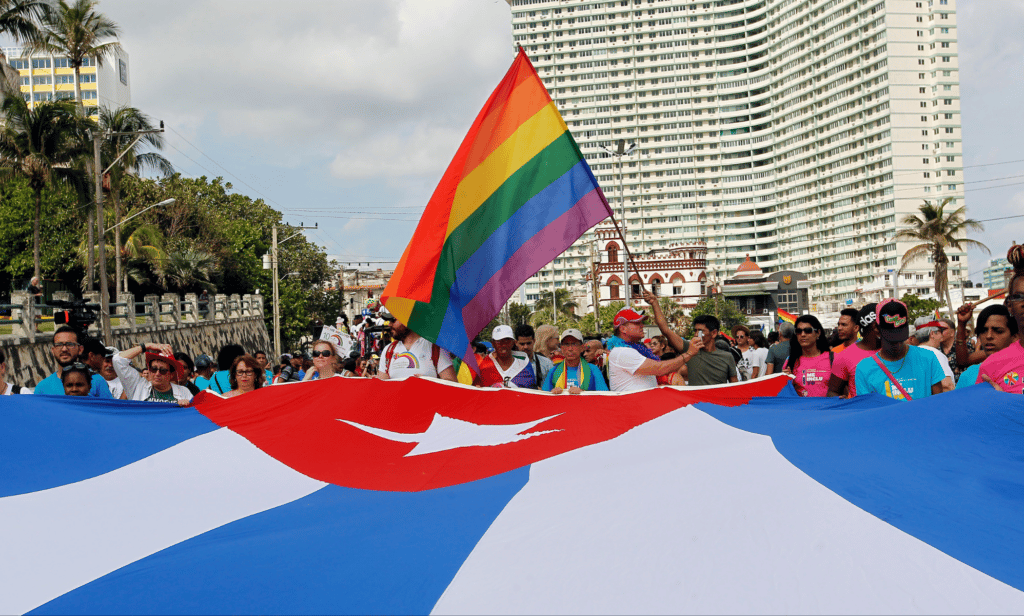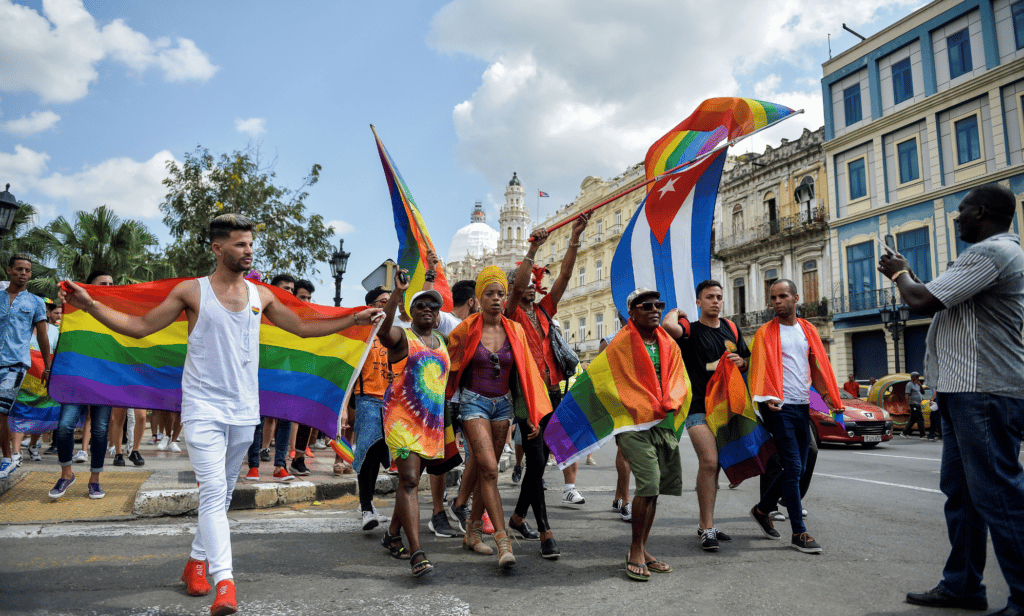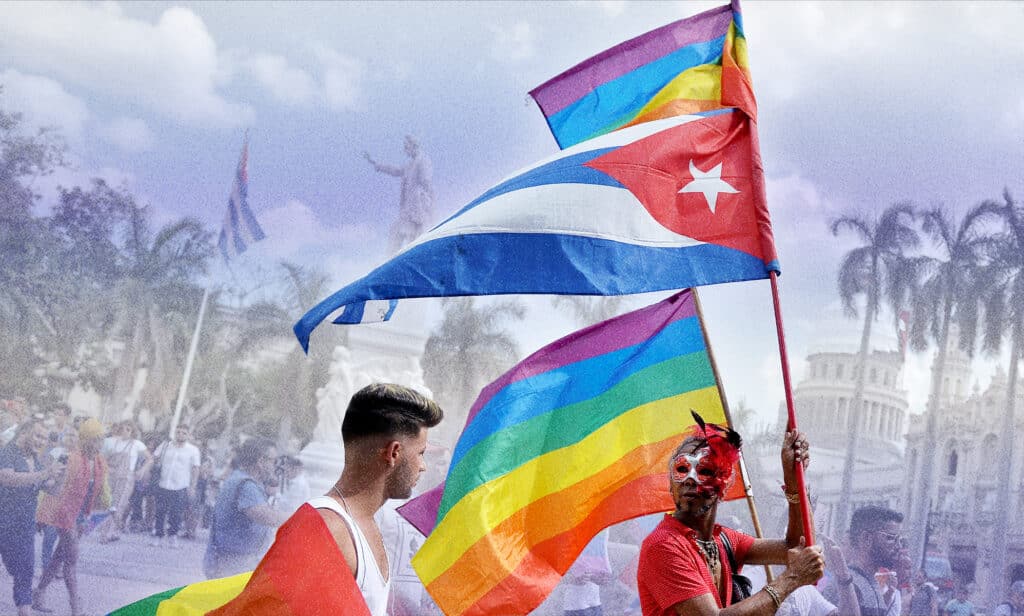The Cuban government has urged citizens to vote ‘yes’ on a broad legislative package, which would improve LGBTQ+ and women’s rights in the country. (Getty)
Cuba’s government has urged citizens to approve a new LGBTQ+ friendly legislative package that would introduce same-sex marriage and allow queer couples to adopt children.
Cuba is holding a referendum on its new family code, which will greatly expand LGBTQ+ and women’s rights, on Sunday (25 September). The measure began a public consultation in April and was approved by the Cuban Assembly in July.
Citizens will now vote to decide whether to approve this new code which would legalise same-sex marriage, allow same-gender couples to adopt children, guarantee greater rights for women and promote equal sharing of domestic responsibilities.
The Communist-run government led a campaign in the last week to urge citizens to vote ‘yes’ on the LGBTQ-friendly package. This included promotional segments on radio and TV, roadside billboards and tweets from president Miguel Díaz-Canel.
Díaz-Canel shared an image of some “moving life stories” that described the importance of the referendum.
“The code is who we are,” he wrote. “It’s Cuba.”
Historias de vida realmente sensibles y conmovedoras, que hablan de la importancia del #CódigoDeLasFamilias para todos.
El Código es lo que somos. Es Cuba 🇨🇺#CódigoSí ❤ pic.twitter.com/472Re6drYA— Miguel Díaz-Canel Bermúdez (@DiazCanelB) September 23, 2022
The state’s national sex education centre (CENESEX) – which is led by LGBTQ+ rights campaigner Mariela Castro, the daughter of former Cuban president Raul Castro – also called on Cubans to approve the progressive package.
CENESEX said in a statement the measures recognise and protect the “plurality of existing family models in current Cuban society”.
It added the measures will work to settle a “historical debt with equality with the right of all people to marriage, de facto effective unions, adoption and the usage of assisted human reproduction techniques”.
The referendum is a massive move towards progressive legislation in Cuba as it would overhaul several 1975 laws left in place since the era of former president Fidel Castro.

Castro led the country during a crusade of persecution against LGBTQ+ people during the almost 50 years he was in power.
The revolutionary rounded up and sentenced thousands of dissidents and gay people – particularly gay men or those perceived to be gay – to either prison or forced labour. Homosexuality was declared a “deviation incompatible with the revolution” by Castro’s regime.
In 2010, Castro acknowledged he was ultimately responsible for the persecution of LGBTQ+ people in Cuba after the revolution in 1959.
Castro said he was busy dealing with the “terrible problems” of “life and death” during that time, and he was “not able to deal with that matter” of the widespread persecution of queer people.
He said he wasn’t prejudiced against LGBTQ+ people but admitted if “anyone is responsible (for the persecution) it’s [him]”.

The proposed LGBTQ-friendly laws will require more than 50 per cent of votes to pass, and officials said almost 62 per cent of Cubans were in favour of the measures.
Policy changes in previous referendums, however, had the support of more than 90 per cent of voters.
The progressive changes have faced fierce opposition from religious groups, who claimed the “majority of Cubans” wanted the definition of marriage to remain as the “union of a man and a woman”.
Cuba’s government backed away from enshrining same-sex marriage protections when draftings its new constitution in 2018.
LGBTQ+ advocates campaigned for the government to change the description in the constitution of marriage to a union of “two people” with “absolutely equal rights and obligations” instead of its dated wording as a union of a man and woman.
However, religious groups led a ferocious campaign against including same-sex marriage protections in the constitution.
The government removed the planned changes to pave the way for same-sex marriage, and almost 87 per cent of voters approved the country’s new constitution in 2019.
Though, the current constitution defines marriage as a “social and legal institution” that is “one of the organisational structures of families”, rather than defining it as a union between a man and a woman.
